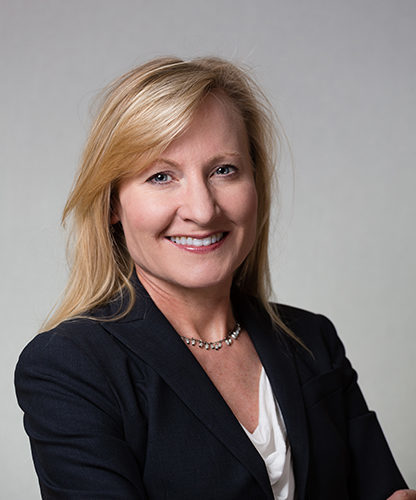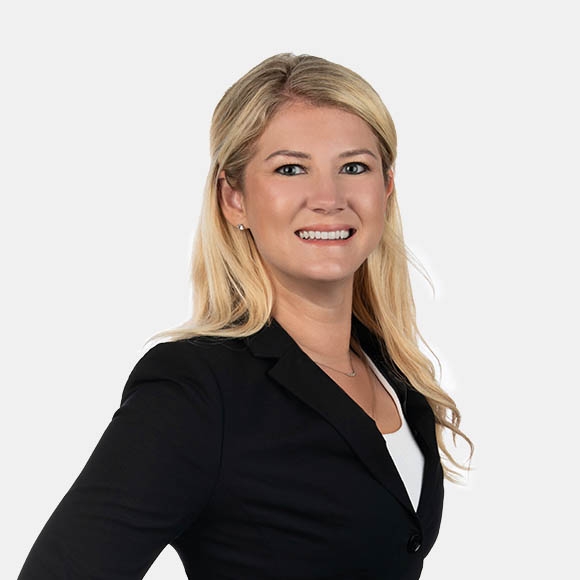Florida Legislature Approves Changes To Property Insurance Laws For Admitted And Surplus Lines Insurers
By Charles W. Deutsch
On Friday, April 30, 2021, on the last day of Florida’s annual legislative session, the Florida state legislature passed Senate Bill 76. The bill, which is expected to be signed into law by Governor Ron DeSantis, is intended to combat fraud and rising insurance rates for consumers. The bill impacts both admitted and surplus line carriers. If signed, Senate Bill 76 will take effect on July 1, 2021, and will address some of the more significant imbalances which plaintiffs’ attorneys and contractors have relied upon to squeeze insurance carriers in the state.
Key Provisions
Senate Bill 76 addresses a number of issues that have plagued the homeowners’ insurance market in recent years. Among the most significant changes, the bill will help to shift the balance of power away from the plaintiff’s bar by:
- Replacing Florida’s one-way attorney fee statute with a more balanced formula for determining fee recovery, and eliminating the use of a fee multiplier in most cases;
- Instituting an across-the-board two-year statutory notice period for new and reopened property insurance claims, and a three-year statutory notice period for supplemental claims;
- Requiring plaintiffs to provide detailed, written notice of intent to sue at least ten days before filing suit; and
- Requiring plaintiffs, including assignees of benefits, to provide notice when bringing multiple suits under the same policy so that cases may be consolidated where appropriate.
Senate Bill 76 also contains several provisions directed towards reducing the flood of roofing claims, including:
- Barring roofers and their agents from making certain aggressive, prohibited advertisements;
- Prohibiting contractors from interpreting insurance policies or offering advice to insureds regarding duties under an insurance policy;
- Prohibiting contractors and public adjusters from offering anything of value to a policyholder in order to obtain permission to perform a roof inspection, interpret an insurance policy, file a claim, or adjust a claim on the homeowner’s behalf;
- Prohibiting referral fees for roofing claims; and
- Requiring contractors to provide a detailed cost estimate for labor and materials when entering into a contract.
Each of the above prohibitions carries a $10,000 penalty for violation.
Bill Summary
Impact on Attorney Fees and Costs
Senate Bill 76 creates Florida Statute § 627.70152, which applies to first-party property insurance claims brought against both admitted and surplus carriers. The new statute does not apply to assignees of benefits (which are governed by a separate 2019 Florida statutory revision).
Currently, attorney fees in first-party property disputes are governed by § 627.428 (admitted carriers) and § 626.9373 (surplus lines), which provide that a plaintiff who prevails at trial and receives an award of any amount is entitled to recover all of its fees and costs. Additionally, Florida courts, particularly state courts, have liberally awarded multipliers of between 1.5 to 3 times the lodestar attorney fee amount awarded. The result is that relatively minor coverage awards can result in outsized fee awards.
Under Senate Bill 76, awards for attorney fees and costs in suits involving both admitted and surplus line carriers will be governed by a formula set forth in § 627.7052. The new formula compares the “disputed amount” to the ultimate award. The disputed amount is the difference between the pre-suit demand (exclusive of fees and costs) and the carrier’s pre-suit offer. The formula is as follows:
- If the difference between the award and the pre-suit offer is less than 20% of the disputed amount, each party pays its own fees and costs;
- If the difference between the award and the pre-suit offer is at least 20% but less than 50% of the disputed amount, then the insurer will be liable for the plaintiff’s fees and costs equal to the percentage of the disputed amount obtained; and
- If the difference between the award and the pre-suit offer is greater than 50% of the disputed amount, then the insurer will be liable for the full amount of fees and costs.
As an example, in a case involving a pre-suit offer of $100,000 and a pre-suit demand of $200,000, the amount in dispute would be $100,000. If the jury awards less than $120,000, then the insurer will not be liable for plaintiff’s fees and costs. If the jury awards between $120,000 and $149,999, then the insurer will be liable to the plaintiff for a corresponding percentage of its fees and costs (e.g., if the jury awards $130,000, then the insurer will be liable for 30% of plaintiff’s fees and costs). If the jury awards $150,000 or more, then the insurer will be liable for the full amount of fees and costs.
Additionally, under the new statute, the lodestar calculation of attorney fees enjoys a presumption of reasonableness. In determining the lodestar amount, the court multiplies the number of hours reasonably expended on the case by a reasonable hourly rate to arrive at a final figure for attorney fees. Because this figure is presumptively reasonable, potential attorney fee awards likely will not be subject to multipliers.
Two-Year Statutory Notice Period for All Property Claims
Senate Bill 76 also expands § 627.70132 to create a universal statutory notice period for first-party claims brought against admitted and surplus line carriers. Currently, § 627.70132 provides for a three-year statutory notice period for claims, supplemental claims, and reopened claims, but only for damage caused by windstorms or hurricanes. The current law does not define supplemental or reopened claims, and there is no statutory notice period for other property claims.
The expanded § 627.70152 extends the notice requirement to loss or damage from any peril. It also reduces the notice period for new and reopened claims to two years from the date of loss. The notice period for supplemental claims is three years from of the date of loss. The law defines a reopened claim as “a claim that an insurer has previously closed, but that has been reopened upon an insured’s request for additional costs for loss or damage previously disclosed to the insurer.” A supplemental claim is “a claim for additional loss or damage from the same period which the insurer has previously adjusted or for which costs have been incurred while completing repairs or replacement pursuant to an open claim for which timey notice was previously provided to the insurer.”
Of note, §627.70132 only applies to first notice of a claim. It does not impact the five-year statute of limitations in which a policyholder may bring a breach of contract suit. Additionally, §627.70132 does not apply to claims brought by assignees of benefits.
New Pre-Suit Notice Requirements for Claimants
The newly created § 627.70152 will also impose strict new pre-suit notice rules on claimants bringing suit against both admitted and surplus lines carriers. Currently, there is no requirement for claimants to provide carriers with pre-suit notice. As a result, carriers are frequently subjected to suits in which they have little, if any, knowledge regarding the specific nature of the alleged violations and the amount in controversy.
Under the new rule, plaintiffs will be required to provide carriers with pre-suit notice at least ten days prior to filing suit, but not before the carrier’s coverage determination. The notice must be on a form provided by Florida’s Department of Financial Services and served at an email address on file with the Department. The notice must include, with specificity, the alleged acts or omissions giving rise to the suit. If the carrier denied coverage, then the notice must include an estimate of damages. Otherwise, the notice must include a pre-suit demand and the disputed amount. The amount in controversy must include damages, attorney fees, and costs.
§ 627.70152 requires that carriers implement a procedure for the prompt investigation or review of noticed claims and investigate each claim upon receipt of notice. Carriers must respond within ten business days. If the notice relates to a matter for which the carrier denied coverage, then the carrier must respond by accepting coverage, continuing to deny coverage, or asserting the right to reinspect the property. If a carrier elects to reinspect the property, it must do so within 14 business days and then either accept or continue to deny coverage. If the notice was filed in a matter in which the carrier did not deny coverage, then it may either make a settlement offer or require the claimant to participate in appraisal or alternative dispute resolution such as mediation.
The new notice requirement is mandatory. Any suit filed without proper notice must be dismissed without prejudice.
The new notice requirement will help to level the field by placing all parties on notice of the amount in controversy, thereby eliminating the need for insurers to seek demands early in the litigation process. It will also reduce the ability of plaintiffs to avoid removal to federal court by hiding the amount in controversy. Additionally, in conjunction with the fee calculation portion of the law, the new notice requirement will allow insurers to accurately calibrate their pre-suit offers to minimize potential fee exposure.
Consolidation of Residential Property Insurance Actions
Senate Bill 76 creates § 627.70153, which applies to all residential property insurance actions. Under the new law, any party that is aware of multiple pending actions involving the same residential property and the same insurance policy must provide the court with written notice. Following receipt of notice, the court may order consolidation and transfer of the actions. If the total amount in controversy of all claims meets the threshold for circuit court jurisdiction, then the cases may be consolidated in circuit court. If multiple cases are already pending in circuit court, then they may be consolidated where the first action was filed.
The new consolidation rule will help to streamline matters in which claimants and AOBs file multiple lawsuits arising from the same claim.
New Prohibitions to Address Unscrupulous Contractor and Public Adjuster Practices
Senate Bill 76 creates § 489.147, which applies to contractors involved in roofing claims. Under current rules, contractors have significant leeway to drum up business by aggressively advertising and offering policyholders various incentives. The new law seeks to curb some of that unscrupulous behavior by setting new limits on acceptable practices.
The new law prohibits contractors from advertising in any way that encourages a consumer to contact a contractor or public adjuster for the purpose of making an insurance claim for roof damage. The law will also bar contractors from offering anything of value (such as a rebate, gift card, or deductible waiver) for allowing them to inspect a residential property’s roof or make a claim for damage to the roof and from offering referral fees. The law will bar contractors from interpreting policy provisions or offering advice on coverage, unless the contractor holds an appropriate public adjuster license. Finally, the law will require contractors to provide the policyholder with a good faith estimate of the itemized and detailed cost of services and materials.
Senate Bill 76 also expands § 626.854 to include new prohibitions on public adjusters. The law will be expanded to bar public adjusters from offering anything of value to a property owner to conduct an inspection or make an insurance claim for roof damages. The law also bars referral fees related to roof claims.
Each of the above-noted provisions carries a fine of up to $10,000 per violation. If signed, the new prohibitions on contractors and public adjusters will help to reduce or eliminate the volume of cases that would not have been brought but for unscrupulous solicitation.
Insurer Annual Reporting
Beginning January 1, 2022, insurers that issue residential property insurance policies in Florida – commercial or personal lines – shall file a report outlining closed claims, including:
(a) The unique claim identification number.
(b) The type of policy.
(c) The zip code of the property where the claim occurred.
(d) The county where the claim occurred.
(e) The date of loss.
(f) The peril or type of loss, including information about the types of vendors used for mitigation, repair, or replacement; and the names of vendors used, if known.
(g) The date the claim was reported to insurer.
(h) The initial date the claim was closed, including information about whether the claim was closed with or without payment.
(i) The date the claim was most recently reopened, if applicable.
(j) The date a supplemental claim was filed, if applicable.
(k) The date the claim was most recently closed, if different from the initial date the claim was closed.
(l) The name of the public adjuster on the claim, if any.
(m) The Florida Bar number and name of the attorney for the claimant, if any.
(n) The total indemnity paid by the insurer.
(o) The total loss adjustment expenses paid by the insurer.
(p) The amount paid for claimant’s attorney fees, if any.
(q) The amount paid in costs for claimant’s attorney’s expenses, including, but not limited to, expert witness fees.
(r) The contingency risk multiplier, if any, that the claimant’s attorney requested to be applied in calculating the attorney fees awarded to the claimant’s attorney.
(s) The contingency risk multiplier, if any, that a court applied in calculating the attorney fees awarded to the claimant’s attorney.
(t) Any other information deemed necessary by the commission to provide the office with the ability to track litigation and claims trends occurring in the property market.
Learning Points: Senate Bill 76, if signed into law, represents a positive development for carriers operating in Florida. The new changes will apply to both admitted and surplus lines carriers operating in the state.
Florida’s automatic fee shifting statute will be replaced with a formula that takes into account pre-suit offers, pre-suit demands, and final awards. The closer that an offer was to the judgment, the less the carrier will be liable with respect to plaintiff attorney fees and costs.
The law will implement a universal two-year statutory notice period for all first-party property claims and reopened claims, and a three-year statutory notice period for supplemental claims.
Plaintiffs must produce a detailed pre-suit notice to carriers, including the total amount that they believe to be in controversy. Thereafter, carriers have several options for how to proceed, including accepting coverage, denying coverage, reinspecting the property, and seeking mediation.
New reporting rules will encourage consolidation of residential property claim litigation. Consolidated claim lawsuits meeting the dispute amount threshold for circuit court jurisdiction may be consolidated in circuit court, as opposed to county or small claims court.
Public adjusters and contractors are barred from certain aggressive advertising and unscrupulous practices that they have used to manufacture claims that would not have been brought otherwise.
For Further Information: Clausen Miller will continue to analyze this bill in anticipation of being signed into law. For questions, please contact Anne Kevlin, Doug Cohen, Ramy Elmasri, Kelly Vogt, Mike Raudebaugh, Nick Travis, or Tom Moody of Clausen Miller’s Florida offices.
 Charles W. Deutsch
Charles W. Deutsch Private: Anne E. Kevlin
Private: Anne E. Kevlin Douglas M. Cohen
Douglas M. Cohen Ramy P. Elmasri
Ramy P. Elmasri Kelly M. Vogt
Kelly M. Vogt Michael J. Raudebaugh
Michael J. Raudebaugh Nicholas W. Travis
Nicholas W. Travis Thomas J. Moody
Thomas J. Moody